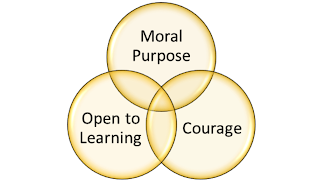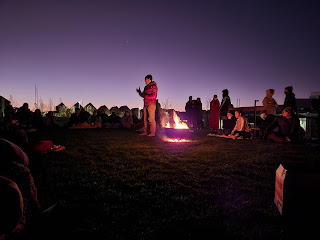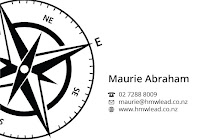I was rapt
when the Secondary Principals Council won 2 annual payments of $6000 for
Principal Wellbeing in the latest Collective Agreement. Steering our schools
through the pandemic in a way that kept students connected to their school and
learning, balancing the wellbeing needs of students and staff and supporting
the range of and rapidly developing protection measures put in place by the government
was demanding work for principals. We had been asking for programmes such as
professional supervision for many years and now principals could use this new
resource to best support their wellbeing.
I was a
little disturbed by the speed at which a range of wellbeing retreats in a number
of Pacific Islands emerged which included a few half days focussing on personal
wellbeing (with, I suspect, some tools to support wellbeing) and time for rest
and relaxation. I was worried a bit about these because it was my view that
yes, a few days relaxing on a Pacific Island might help you overcome some
stress in the short-term, but it may not actually address the long-term stress
that was impacting on the wellbeing of principals. The demands of leading our
schools in these rapidly changing times would still exist after returning from
such a break.
During a
visit to Wellington last November I caught up with Derek
Wenmoth for a coffee to discuss how we could work together to support
principal wellbeing. It soon became clear that we shared the view that a
principal’s wellbeing was best served when they clearly understood their ‘why’,
their moral purpose, and were equipped with tools that allowed them to lead
their school on a journey of transformation that was driven by this moral
purpose. I certainly knew in my own principalship that being clear about what I
was prepared to ’die in the ditch’ for meant I had the confidence to be
courageous and to take action. I was able to reflect that my wellbeing was best
served when my leadership was guided by my personal Leadership Model shown in
the diagram below:
This
conversation was the beginning of the work that resulted in Derek and I rolling out Refresh, Reconnect,
Refocus – a programme that began with a 2 day retreat for 14 primary and
secondary principals in Hanmer almost 2 weeks ago.
Over 2 days
each participant was supported to re-engage with and explore their own moral
purpose around their leadership, imagine a range of possibilities, identify an
area of focus for their leadership, explore tools and frameworks for guiding
their next steps and connecting with a buddy from the group to support each
other over the next 20 weeks.
The
feedback, at this early stage, from the participants has been hugely positive.
One participant posted on Facebook, “Best PLD ever!”
Other
participant feedback included the following:
I loved the mix
of Secondary and Primary Principals, quite unique. Sincere collaboration felt
between all participants.
A good investment
in my professional learning because it was organised and planned by experts who
have a deep, authentic and proven understanding of what is important in schools
ie what to focus on for the maximum benefit to schools and learners.
Two days of
taking a breath and focussing on what really matters with passionate, engaged
educational facilitators in a peaceful alpine setting. Listening and connecting
with other principals who came to refresh, reconnect and refocus. This hui
delivered all this and more.
Engaged,
passionate, well informed facilitators who seamlessly worked together to
deliver an outstanding programme of thought provoking leadership learning.
Refresh,
Reconnect, Refocus is the perfect title for this professional development. It
does just that. A fantastic retreat, space to think, relax and start to
reconnect.
As a facilitator I came away refreshed, reconnected and refocused!
What Next?
Derek challenged all participants to think of themselves as Systems Leaders, not just as leaders of their own school (see his post here). Tomorrow's Schools has us as leaders of our own entities, each doing our best to navigate the rapidly changing environment. There has never been, in my view, a rallying vision for us all to unite behind despite the best intentions of the Ministry, different Ministers and programmes like Kāhui Āko. It is time for a movement of like-minded leaders to connect and focus in meaningful and sustainable ways to support each other on this important journey of transformation. This felt like the beginnings of such a movement.
We've started with 14!
We’ve had a number of inquiries already about whether we’re planning to
run this sort of programme into the future, including questions about running
it for APs and DPs. If this is something you’d like to be a part of, or know of
someone who might be interested, I encourage you to add your name to our
registration of interest so that we can keep you informed of our plans moving
forward into the second half of 2024 and 2025.
Think about joining a movement of like-minded leaders!
An opportunity for emerging leaders
We are both really
motivated to work with newly appointed APs and DPs as they are our future
principals. I can’t help but think how I would have benefitted, early in my
leadership, from being supported to explore my moral purpose in relation to
leadership, to explore different ways of leading and to become familiar with a
range of tools and frameworks to support my leadership.
The drivers
for change in schooling are not going to go away and it is vital, in my view,
that leaders do not become part of the roadblocks.
If you want
to be on this waka or know someone who should be on it, please register through
this link or share it with that someone.


























